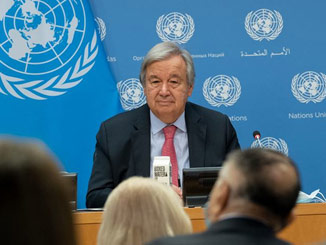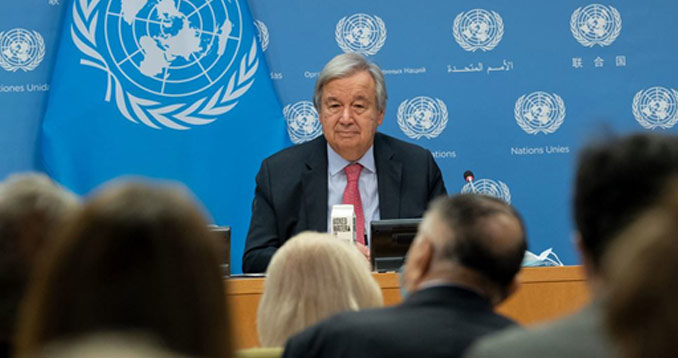

As hundreds of Heads of State and Government prepare to fly into New York for the General Debate of the new General Assembly, UN Secretary-General António Guterres has called on them to bring hope to a fractured world, and increase efforts to fight the climate crisis.
At a press briefing on Wednesday, Mr. Guterres promised to address the many challenging issues facing the planet, in his speech next week to the General Assembly, which will also contain concrete recommendations for lasting solutions, and a call to action.
The UN chief began by recalling the devastation he witnessed on his recent trip to flood-hit Pakistan, which he described as a window into a “future of permanent and ubiquitous climate chaos on an unimaginable scale”.
Mr. Guterres, who is from Portugal, noted that the flooding covers an area three times the size of his homeland.
In typically uncompromising language, he lambasted the global response to the climate crisis as inadequate, unjust and, at its heart, a betrayal. “Whether it’s Pakistan, the Horn of Africa, the Sahel, small islands or Least Developed Countries, the world’s most vulnerable – who did nothing to cause this crisis – are paying a horrific price for decades of intransigence by big emitters”.
Targeting the leaders of the world’s wealthiest nations, the UN chief reminded them that they are responsible for the vast majority of climate-related emissions and, even though they are also heavily impacted by record droughts, fires and floods, climate action in response, appears to be on life-support.
He wondered aloud if the reaction would be different if one third of G20 countries, rather than Pakistan, were currently underwater.
All countries need to cut emissions every year – with the G20, as the leading emitters, leading the way, Mr. Guterres told correspondents in New York – until the global temperature rise is limited to 1.5 degrees above pre-industrial levels.
Returning to the example of Pakistan, Mr. Guterres insisted that the country, and other climate hotspots, need flood-resilient infrastructure now, arguing that at least half of all climate finance, must go to adaptation and climate resilience.
That funding, he said, must come from the leading economies.
“Lower the temperature — now”, he said. “Don’t flood the world today; don’t drown it tomorrow.”

Leave a Reply